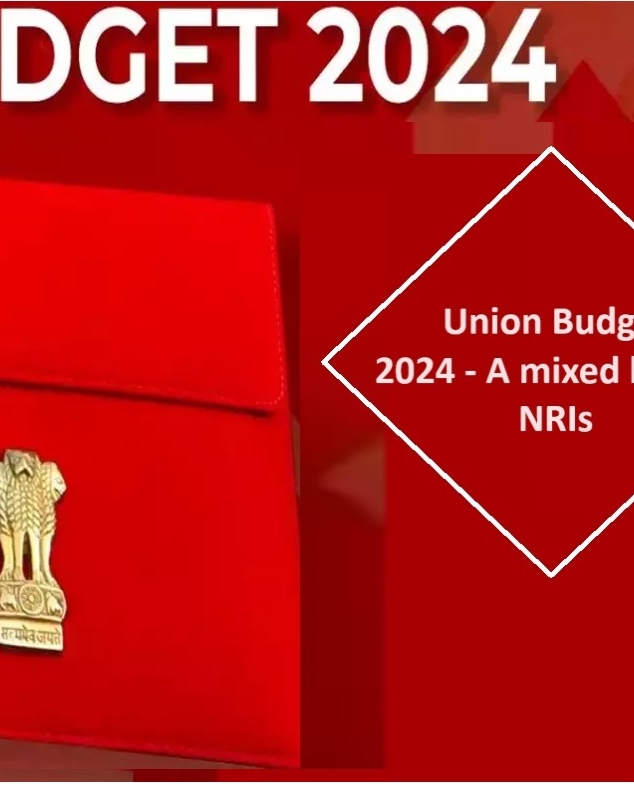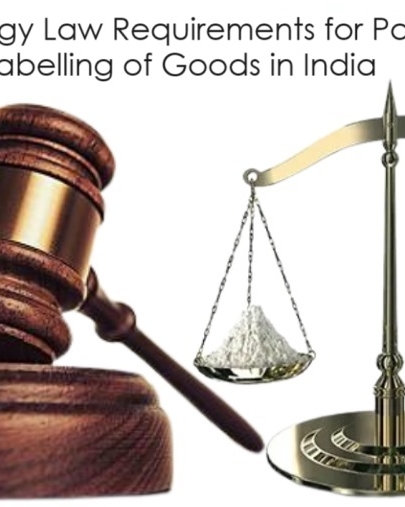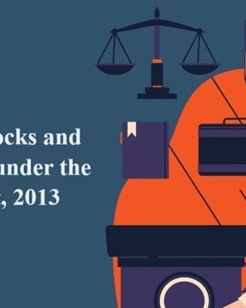Highlights:
Corporate Brief
- SEBI circular on Foreign Venture Capital Investors.
- SEBI (Grant of Reward to Informant under Recovery Proceedings) Guidelines, 2023.
- SEBI circular on Amendment of SEBI (Buy-back of Securities) Regulations, 2018.
- SEBI circular on Framework for Adoption of Cloud services by SEBI REs.
- SEBI circular for Portfolio Managers.
- SEBI circular on Surveillance of Securities Market.
- SEBI circular on E-Wallet investments in Mutual Fund.
- SEBI circular on streamlining the onboarding process of FPIs.
- SEBI circular on Extension of compliance period – Fund raising by large corporates.
- SEBI circular on Operational Circular for Debenture Trustees.
- SEBI circular on Amendment to Securities Lending Scheme, 1997
- MCA notification on Companies (Indian Accounting Standards) Amendment Rules, 2023
RERA Brief
- Order dated 14.03.2023 issued under Section 37 of the Real Estate Regulation and Development Act, 2016 by Rajasthan Real Estate Regulatory Authority (Rajasthan RERA) for issuing of instruction in respect of mandatory registration
NCLT Brief
- Discretion of NCLT in Initiating CIRP Proceedings Under Section 7 of the I&B Code
- QUESTION OF LAW: Whether the proceedings under Insolvency and Bankruptcy Code, 2016 can be used for recovery of success fee/brokerage fee where the Corporate Debtor denies the claim by giving notice of dispute?
Litigation Brief
- One sided clause in Agreements amounts to Unfair Trade Practice under Consumer Protection Act.
- ARBITRAL TRIBUNAL CAN AWARD PENDENTE LITE INTEREST IRRESPECTIVE OF WHETHER SUCH A CLAUSE IS PRESENT IN THE CONTRACT UNLESS THERE IS A SPECIFIC BAR
- MERE EXISTENCE OF AN ARBITRATION CLAUSE WOULD NOT BE SUFFICIENT TO SEEK APPOINTMENT OF AN ARBITRATOR FROM THE COURT
- WHERE PARTIES FAIL TO ESTABLISH TITLE IN A SUIT FOR POSSESSION, PRIOR POSSESSION BECOMES MATERIAL
Corporate Brief
Circular No. SEBI/HO/AFD/PoD/P/CIR/2023/34 dated 03.03.2023 issued by Securities and Exchange Board of India (“SEBI”)
- Master Circular of Foreign Venture Capital Investors (FVCIs)
The SEBI has issued a Master Circular for Foreign Venture Capital Investors (FVCIs) to provide stakeholders. The circular outlines requirements and regulations for FVCIs, including obtaining a firm commitment of at least USD 1 million by applicants desirous of registering with SEBI as FVCI, submitting quarterly reports on venture capital activity in a specified format, and using an online filing system for registration, reporting, and compliance.
The circular aims to regulate FVCIs and protect the interests of investors in securities.
SEBI (Grant of Reward to Informant under Recovery Proceedings) Guidelines, 2023.
These guidelines regulate the granting of rewards to informants who provide original information about a defaulter’s assets resulting in the recovery of dues certified as ‘difficult to recover’. Any person can be eligible for a reward by submitting information in FORM A and a statement/declaration specified in FORM B to a recovery agent (Nodal Officer). The information provided will be verified by the Nodal Officer, and rewards will be awarded in two stages. The Interim stage reward will not exceed 2.5% of the reserve price of the asset or Rs. 5 lakhs, whichever is less.
The Final stage reward will not exceed 10% of the dues recovered or Rs. 20 lakhs, whichever is less. The reward amount will be determined based on various factors, including the accuracy of the information provided and the extent of assistance rendered. The reward will be paid from the Investor Protection and Education Fund. The guidelines also introduce two forms, Form A for furnishing information and Form B for a statement/declaration.
Circular No. SEBI/HO/CFD/PoD-2/P/CIR/2023/35 dated 08.03.2023 issued by Securities and Exchange Board of India (“SEBI”)
- Operational Guidance – Amendment of SEBI (Buy-back of Securities) Regulations, 2018
The Securities and Exchange Board of India (SEBI) has notified the Buy-Back of Securities (Amendment) Regulations, 2023, which will come into effect from 30th day of the notification date. The regulations will be applicable to all buy-back offers approved by the board of directors of a company on or after March 9, 2023.
The amendment regulations impose restrictions on companies undertaking buy-back through stock exchange route, including restrictions on placement of bids, price, and volume. The company and its appointed broker are responsible for complying with the regulations, and the stock exchange will monitor compliance and impose fines for any non-compliance. The escrow account for buy-back offers must consist of cash and/or other than cash, subject to an appropriate haircut, and the merchant banker is responsible for ensuring adequate funds in the escrow account until completion of the buy-back formalities.
This circular is issued to protect investors’ interests and regulate the securities market. The recognized stock exchanges are directed to bring the provisions of this circular to the notice of all listed entities and disseminate the same on their websites.
Circular No. SEBI/HO/ITD/ITD_VAPT/P/CIR/2023/033 dated 06.03.2023 issued by Securities and Exchange Board of India (“SEBI”)
- Framework for Adoption of Cloud Services by SEBI Regulated Entities (REs)
SEBI has introduced a cloud framework for regulated entities (REs) to establish baseline standards for security and regulatory compliance when adopting cloud services. The objective is to identify and address critical risks associated with cloud computing and establish mandatory control measures that REs must implement before adopting cloud services. The framework covers Governance, Risk and Compliance (GRC), selection of Cloud Service Providers (CSPs), data ownership and localization, due diligence by REs, security controls, legal and regulatory obligations, Disaster Recovery (DR) & Business Continuity Planning (BCP), and vendor lock-in risk. REs currently using cloud services have up to 12 months to comply with the framework, and SEBI has provided a transition period for implementation. The framework is applicable to various regulated entities and aims to minimize risks associated with cloud adoption while ensuring regulatory compliance.
Circular No. SEBI/HO/IMD/IMD-POD-1/P/CIR/2023/38 dated 20.03.2023 issued by Securities and Exchange Board of India (“SEBI”)
- Master Circular for Portfolio Managers
The Securities and Exchange Board of India (SEBI) has issued the Master Circular for Portfolio Managers which covers various aspects, including registration and post-registration activity, operating guidelines, and investments by portfolio managers. Some provisions mentioned in the Master Circular will be applicable from April 1, 2023, while others will come into effect from the quarter ending September 2023. The Master Circular is issued to protect the interests of investors in securities and regulate the securities market. The Master Circular includes sections on registration, post-registration activity, operating guidelines, and investments by portfolio managers. Specific provisions in these sections cover issues such as the application procedure for registration as a Portfolio Manager, the guidelines for advertisements, the minimum investment amount by clients and schemes, investment in derivatives, and limits on investment in securities of associates/ related parties of Portfolio Managers, among other things.
Circular SEBI/HO/ISD/ISD-PoD-2/P/CIR/2023/039 dated 23.03.2023 issued by Securities and Exchange Board of India (“SEBI”)
- Master Circular for Surveillance of Securities Market
SEBI has published this Master Circular to consolidate the provisions of various circulars pertaining to surveillance of securities market. The purpose of this circular is to protect the interests of investors and regulate the securities market. It covers trading rules and shareholding in dematerialized mode, monitoring of unauthenticated news circulated by SEBI registered market intermediaries through various modes of communication, disclosure reporting under the Securities and Exchange Board of India (Prohibition of Insider Trading) Regulations, 2015 and rules relating to the trading window closure.
This Master Circular is issued in exercise of powers conferred under Section 11 (1) of the Securities and Exchange Board of India Act, 1992 to protect the interest of investors in securities and to promote the development of, and to regulate the securities market.
Circular No. SEBI/HO/IMD/IMD-PoD-2/P/CIR/2023/40 dated 23.03.2023 issued by Securities and Exchange Board of India (“SEBI”)
- E-Wallet investments in Mutual Funds
SEBI allowed the use of e-wallets for investing in mutual funds up to INR 50,000 per financial year per mutual fund through both e-wallet and cash. However, all e-wallets used for investment in mutual funds must comply with KYC norms as prescribed by RBI. The other provisions mentioned in the Circular will remain unchanged. These provisions will come into effect from May 01, 2023. SEBI issued this Circular in exercise of the powers conferred under Section 11 (1) of the Securities and Exchange Board of India Act, 1992, read with Regulation 77 of the Securities and Exchange Board of India (Mutual Funds) Regulations, 1996 to protect the interests of investors in securities and to promote the development of and regulate the securities market.
Circular No. SEBI/HO/AFD/P/CIR/2023/043 dated 27.03.2023 issued by Securities and Exchange Board of India (“SEBI”)
- Streamlining the onboarding process of FPIs
The Securities and Exchange Board of India (SEBI) has simplified the procedural requirements for onboarding and registration of Foreign Portfolio Investors (FPIs) by designated depository participants (DDPs) through a circular issued on March 27, 2023. FPI applicants can submit scanned copies of application forms and supporting documents to DDPs for obtaining FPI registration, and the registration can be granted based on such scanned copies. FPIs are also allowed to use digital signatures for executing application forms and other registration-related documents. Additionally, authorised bank officials of multinational foreign banks and banks regulated by Reserve Bank of India (RBI) can use the SWIFT mechanism to certify copies of original documents submitted by FPIs. FPI applicants that are part of an existing FPI investor group registered with SEBI only need to provide a unique FPI investor group ID instead of details of all constituents of the group. The revised procedural requirements are expected to make the onboarding of FPIs more efficient and simpler.
Circular No. SEBI/HO/DDHS/DDHS-RACPOD1/P/CIR/2023/049 dated 31.03.2023 issued by Securities and Exchange Board of India (“SEBI”)
- Extension of compliance period –Fund raising by large corporates
The NCS Operational Circular on ‘Fund raising by issuance of Debt Securities by Large Corporates’ mandates large corporates to raise 25% of their incremental borrowings in a financial year through debt securities issuance. This requirement was to be met over a contiguous block of two years from FY 2021-22 onwards. However, upon review and representations from market participants, the requirement has been extended to a contiguous block of three years. The Stock Exchange(s) have been directed to bring this circular to the notice of Stockbrokers and make necessary amendments for implementation.
Circular No. HO/DDHS/P/CIR/2023/50 dated 31.03.23 issued by Securities and Exchange Board of India (“SEBI”)
- Sebi Operational Circular for Debenture Trustees
SEBI has issued an operational circular for debenture trustees that consolidates all applicable circulars to remove inconsistencies and repetitions. Debenture trustees are directed to comply with the conditions laid down in this circular and have necessary systems and infrastructure in place for implementation. The circular is issued in exercise of powers conferred under various regulations to protect the interests of investors in securities and regulate the securities market. The circular will come into force from April 1, 2023.
Circular SEBI/HO/MRD/MRD-POD-2/P/CIR/2023/41 dated 27.03.23 of the Securities and Exchange Board of India (“SEBI”)
- Amendment to Securities Lending Scheme, 1997
The Securities and Exchange Board of India (SEBI) has approved an amendment to its Securities Lending Scheme, 1997. The amendment will require payment of fees, penalties, and recoveries to be made only through digital modes of payment, and not through Demand Draft. SEBI has modified two points under Annexure-B of the Securities Lending Scheme, 1997 to reflect this change. The circular will come into effect from April 1, 2023, and stock exchanges and clearing corporations have been directed to implement the changes and notify their members and to confirm SEBI, that the provisions are duly implemented.
Notification dated 31.03.23 of Ministry of Corporate Affairs (“MCA”)
- Amendment to Companies (Indian Accounting Standards) Rules
The Ministry of Corporate Affairs (MCA) has notified the Companies (Indian Accounting Standards) Amendment Rules, 2023. As per the amended rules, a new para has been inserted in Ind AS 101, which states deferred tax related to assets and liabilities arising from a single transaction shall apply for annual reporting periods beginning on or after 01.04.23. Various other amendments have also been notified. These rules shall be applicable from the financial year beginning on or after 01.04.23.
RERA Brief
Order Number 4(1)RJ/RERA/2017/Part/467 dated 14.03.2023 of Rajasthan RERA regarding the requirement of mandatory registration of a project under the Real Estate Regulatory and Development Act, 2016 (“the Act”) prior to leasing of the plots under plotted development project:
Vide Order No. F.4(1)RJ/RERA/2017/Part/467 dated 14.03.2023, Rajasthan RERA (“Authority”) issued the following directions under Section 37 of the Act:
- At the time of granting approval to the project lay-out plans to all private developers/ promoters/ co-operative societies in the areas of local authorities (development authorities, urban improvement trusts, municipal corporations, municipal councils, municipal committees), a mandatory condition be imposed on the concerned promoter/developer/society that it shall obtain the registration under the Act prior to leasing of plots basis the lay-out plans.
- All the local authorities are required to ensure that RERA Registration has been obtained prior to leasing of plots under the plotted development project, failing which the respective local authority would be deemed as ‘promoter’ and the Authority would accordingly proceed to impose penalty/fine on the same under the Act.
- As far as single plot project is concerned, the lease can be done prior to obtaining of registration under the Act. However, post the leasing and while approving the project drawings/ building plans, the respective local authority shall impose condition of obtaining RERA registration and that the concerned promoters/developers shall be able to undertake marketing/ advertisement/ sale of the plots, apartments, or building only upon obtaining of such RERA registration.
NCLT Brief
Discretion of NCLT in Initiating CIRP Proceedings Under Section 7 of the I&B Code
On 18.01.2023, Ministry of Corporate Affairs, Government of India and the Insolvency & Bankruptcy Board of India (“IBBI”) issued a circular with regard to the proposed amendments in the Insolvency & Bankruptcy Code, 2016 (“Code”). One of the key amendments proposed in the Code relates to Section 7 of the Code that while considering an application for initiation of the CIRP proceedings by the financial creditors, the National Company Law Tribunal (“NCLT”) is only required to be satisfied about the occurrence of a default and fulfilment of procedural requirements for this specific purpose and nothing else.
CURRENT POSITION OF SECTION 7:
A financial creditor can initiate action himself or jointly with other financial creditors, or any other person on behalf of the financial creditor against a corporate debtor when a default occurs.
In Innoventive Industries Ltd v. ICICI Bank Limited [Civil Appeal 8337-8338 of 2017], the Hon’ble Supreme Court held that if a debt and default on the part of a corporate debtor has been proved then the application filed under Section 7 of the Code is required to be admitted by the NCLT.
However, this observation took an interesting deviation in the case of Vidarbha Industries Power Limited vs Axis Bank Limited [Civil Appeal 4633 of 2021 (SC)] wherein the Hon’ble Supreme Court held that even if debt and default has been established, the NCLT can exercise its discretion and it may reject an application filed under section 7 of the Code, even if the corporate debtor is in default. The Hon’ble Court observed as follows:
- The legislative intent behind the usage of the expression “may” in section 7(5) of the Code is to confer a discretion upon the NCLT.
- Where the NCLT is satisfied that a default has occurred and all the procedural requirements are fulfilled then, it may by an order, admit such application.
- The existence of a financial debt and default in payment only gives the financial creditor a right to apply for initiation of the CIRP proceedings of a corporate debtor.
- The NCLT is required to apply its judicial mind to relevant factors in the said respect and ascertain, inter alia, the feasibility of initiating the CIRP of a corporate debtor. The NCLT might examine the expedience of initiation of CIRP taking into account all of the relevant facts and circumstances including the overall financial health and viability of a corporate debtor.
Even a review petition was preferred against the said judgment of the Hon’ble Supreme Court which was dismissed.
PROPOSED CHANGES:
One of the major changes proposed in the Code is that NCLT ‘must’ admit an application filed under Section 7 of the Code if a default is established and other procedural requirements are fulfilled. As per the proposed amendment, there is no room for exercising the discretion of the NCLT to admit or reject an application filed under Section 7 of the Code.
The power of NCLT in this regard is only limited to the determination of default, and Section 7 does not require the NCLT to consider other factors or circumstances regarding the inability of the Corporate Debtor to repay its debts. Thus, this amendment is most likely to reverse the interpretation of the word “may” used in Section 7 of the Code as was observed by the Hon’ble Supreme Court in Vidarbha Industries Power Limited vs Axis Bank Limited. Till 18.01.2023, i.e., the date on which the amendment has been proposed, 16 judgments have already been passed by various forums in which Vidarbha Industries Power Ltd. Vs. Axis Bank Limited was referred.
Hence, this proposed amendment will do away the ambiguity that whether the NCLT has discretion in admitting or rejecting an application filed under Section 7 of the Code.
QUESTION OF LAW: Whether the proceedings under Insolvency and Bankruptcy Code, 2016 can be used for recovery of success fee/brokerage fee where the Corporate Debtor denies the claim by giving notice of dispute?
BRIEF FACTS OF THE CASE:
An appeal was preferred by BNK Securities Private Limited (“Appellant”) before the National Company Law Appellate Tribunal (“NCLAT”) wherein the order dated 11.01.2023 passed by the National Company Law Tribunal, Ahmedabad Bench (“NCLT”) was challenged.
In the present case, the Appellant submitted that there was an agreement between the Appellant and Sebacic India Limited (“Corporate Debtor”) for success fee/brokerage fee and after the completion of performance, the Appellant raised an invoice; however, no payment was made by the Corporate Debtor.
Aggrieved by the non-payment of the success fee by the Corporate Debtor, the Appellant issued a Demand Notice (“Notice”) under Section 8 of the Insolvency and Bankruptcy Code, 2016 (“Code”). The Corporate Debtor immediately refuted the claims of the Appellant in its reply to the Notice issued by the Appellant. Subsequently, an Application under Section 9 of the Code was filed by the Appellant which was dismissed by the NCLT on the grounds that there was pre-existing dispute between the parties.
OBSERVATION OF THE NCLAT
The Hon’ble NCLAT overserved that in the reply to the Notice issued by the Appellant, the Corporate Debtor refuted the claims of the Appellant and made several allegations. The Corporate Debtor in the reply submitted that on 12.01.2019, the Corporate Debtor addressed an Interim Dispute Letter to the Appellant, which clearly showcased the breaches committed by the Appellant under the mandate letter and rejected the invoice
issued by the Appellant for inadequate services. Furthermore, the Appellant did not file any reply to the Interim Dispute Letter sent by the Corporate Debtor which only shows that there was a pre-existing dispute between the parties.
Therefore, in light of the above the Hon’ble NCLAT held that there was a pre-existing dispute between the parties and the NCLT did not commit any error in rejecting the Application filed under Section 9 of the Code. Furthermore, NCLAT held that the proceedings under the Code cannot be used for recovery of success fee as in the present case.
REFERENCE: BNK Securities Pvt. Ltd. Vs. Sebacic India Ltd. [C.A (AT)(Insolvency) No. 335 of 2023 & I.A. No. 1117 of 2023]
Litigation Brief
One sided clause in Agreements amounts to Unfair Trade Practice under Consumer Protection Act.
IN THE MATTER OF: Sunil Sikka vs. M/s. Ramprastha Promoters and Developers Pvt. Ltd. & Ors., bearing Consumer Case No. 746 of 2018
Decided by Hon’ble National Consumer Disputes Redressal Commission on 23.03.2023
Facts:
- The Complainant booked a flat in the residential project launched by the Opposite Parties and entered into Buyer’s Agreement with them. In pursuance thereof, the Complainant paid major part (95% approx.) of the total consideration. The Opposite Parties were liable to handover the possession of the unit by 01.09.2015 with a grace period of 120 days.
- Upon failure of Opposite Parties to hand over the possession within the stipulated period, the Complainant, being the original Allottee, filed the Consumer Complaint alleging deficiency in services on the part of Opposite Parties, who were stated to have indulged in unfair trade practices.
- The Opposite Parties on the other hand, denied any deficiency in services or being involved in unfair trade practices. It was stated that the delay was on account of force majeure and unforeseeable circumstances beyond the control of Opposite Parties. The Opposite Parties further relied upon various clauses of Buyer’s Agreement to state that their obligation to deliver possession was subject to force majeure clause and further that even in case of delay in hand






















